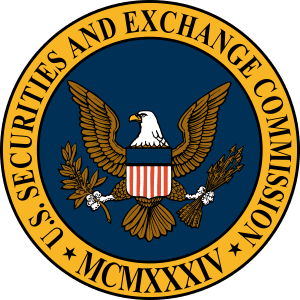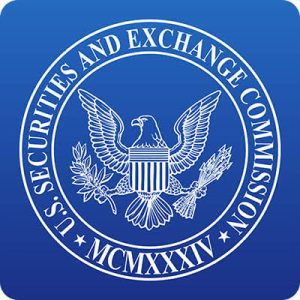The U.S. Securities and Exchange Commission (SEC) plays a crucial role in regulating the securities markets and protecting investors. It ensures fair practices, promotes disclosure, and monitors corporate actions.
[ez-toc]
On the other hand, Coinbase exchange, the largest cryptocurrency exchange in the United States, has been at odds with the SEC over regulatory clarity for digital assets. In this article, we will explore the SEC’s role, delve into Coinbase’s operations, and examine the recent rejection of Coinbase’s request for clarity on crypto regulations.
The U.S Securities and Exchange Commission (SEC)

Established in 1934, the SEC is an independent federal government regulatory agency responsible for maintaining fair and orderly functioning of the securities markets. Its core functions include investor protection, facilitating capital formation, and ensuring the disclosure of essential market information.
The SEC oversees a wide range of entities, including securities exchanges, brokerage firms, dealers, investment advisors, and investment funds. Through its rules and regulations, the SEC promotes transparency, fair dealing, and safeguards against fraudulent practices. Investors can access important information through the SEC’s electronic database, EDGAR.
Coinbase Exchange: The Largest U.S. Cryptocurrency Exchange
Coinbase Exchange Global, Inc., commonly known as Coinbase, is a leading American cryptocurrency exchange. Founded in 2012, Coinbase exchange operates as a distributed company without a physical headquarters. It offers a platform for trading various cryptocurrencies, serving millions of users, institutions, and ecosystem partners across the globe.
In its SEC filing, Coinbase reported substantial growth in revenue and user base, with a net income of $322 million in 2020. The platform plays a significant role in the crypto market, holding around $90 billion worth of assets.
SEC Rejects Coinbase’s Request for Clarity on Crypto Regulations:

Major cryptocurrency exchange Coinbase Global Inc. recently took a significant step in its ongoing battle with the U.S. Securities and Exchange Commission (SEC). On April 24, 2023, Coinbase filed a petition for writ of mandamus with the U.S. Court of Appeals for the Third Circuit.
The petition aims to compel the SEC to respond to Coinbase’s rulemaking petition from July 2022, which requested the creation of new rules for digital assets and regulatory clarity for the crypto industry.
In its public blog post, Coinbase’s Chief Legal Officer (CLO) emphasized the importance of the mandamus action. The company seeks a clear response from the SEC to its petition, which would allow Coinbase and the crypto industry as a whole to move forward with more certainty and a defined regulatory framework.
The rulemaking process, as mentioned by the CLO, serves as a mechanism for agencies to develop regulations with public input and undergo judicial review.
Coinbase’s petition for writ of mandamus urges the court to compel the SEC to either approve or deny the rulemaking petition. By receiving a definitive response, Coinbase aims to establish regulatory clarity and create a framework that addresses the unique aspects of digital assets. The company believes that such clarity is crucial for the long-term growth and development of the crypto industry.
The SEC’s response, or lack thereof, to Coinbase’s rulemaking petition has been a point of contention. Coinbase claims that the SEC has been unresponsive, leaving the crypto industry in a state of uncertainty. By filing the petition, Coinbase hopes to push the SEC to take action and provide the much-needed regulatory guidance.
The petition for writ of mandamus represents a significant escalation in the conflict between Coinbase and the SEC. The SEC’s stance on regulating digital assets has been a subject of debate within the crypto community.
While the SEC has made efforts to address certain aspects of the industry, Coinbase believes that a comprehensive regulatory framework is necessary to provide clarity and foster innovation.
The outcome of Coinbase’s petition will have far-reaching implications for the crypto industry as a whole. A clear response from the SEC would not only benefit Coinbase but also provide guidance to other market participants and potentially shape the future of the regulatory landscape.
It is important to note that regulatory clarity is a complex issue, and striking the right balance between investor protection and fostering innovation is a challenge. The SEC, as the primary regulator overseeing securities markets, must consider various factors before formulating regulations for digital assets.
This includes understanding the unique characteristics of cryptocurrencies, the potential risks they pose, and the evolving nature of the market.
Coinbase’s recent request for regulatory clarity on cryptocurrency regulations faced a clear rejection from the SEC. The Commission refused to provide further guidance, citing existing securities laws that already cover digital assets.
Coinbase had petitioned for a comprehensive new regulatory regime, arguing that digital assets should have distinct regulations. However, the SEC maintained that new regulations were unnecessary, and Coinbase’s request lacked a clear right to relief.
The SEC’s response highlighted its belief that Coinbase’s proposed paths for regulatory action were complicated and not in line with the existing regulatory framework. The Commission emphasized that Coinbase’s rulemaking petition was relatively recent and that extraordinary relief from the court was not warranted simply due to Coinbase’s preference for faster action.
Coinbase’s Chief Legal Officer expressed disappointment in the SEC’s inclination towards litigation rather than productive dialogue. Despite Coinbase’s attempts to seek guidance from the SEC, the response has been largely silent.
The SEC’s Chairman, Gary Gensler, reiterated the Commission’s reluctance to engage in further discussions during a recent conference, indicating a lack of interest in cooperating with crypto firms.
In response to the SEC’s actions, the U.S. Chamber of Commerce filed a brief criticizing the Commission. It argued that the SEC’s approach not only hindered innovation but also had legal implications.
The continued lack of clarity from the SEC has created uncertainty in the regulatory landscape for cryptocurrencies, forcing Coinbase and other crypto firms to navigate carefully.
Conclusion:

The clash between Coinbase and the SEC over crypto regulations highlights the challenges of regulating the rapidly evolving cryptocurrency industry. While the SEC’s primary mandate is investor protection and maintaining fair markets, Coinbase seeks greater clarity to operate within a well-defined framework.
The rejection of Coinbase’s request for regulatory clarity signifies the SEC’s cautious approach and reluctance to engage in extensive rulemaking. As the industry continues to evolve, finding a balance between innovation and investor protection remains a key challenge for regulators and crypto firms alike.
